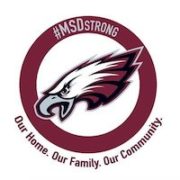What is Rejection Sensitive Dysphoria?
But what if they reject me?
For one neurodivergent young boy, his transition into middle school was causing him some issues. In such a new place with so many new kids, his inability to fit in at his new school was only adding to his stress. He felt as if he was constantly being rejected by his peers, whether it be in class, at lunch, or at after school clubs and activities, causing his self-esteem to become lower by the day. Yet, as he spoke to his parents about his issues, they realized that maybe their son had Rejection Sensitive Dysphoria (RSD), which made him think that some things his peers were saying/doing were them rejecting him, when in reality, they were not.
The young boy would think that when his friends wouldn’t want to do his idea for a project or play the video games he wanted to play, that they were rejecting him. However, they still invited the boy to do what they all agreed on, but instead of compromising, the young boy would act irrationally due to the embarrassment he was feeling after thinking he was being rejected. This then also made it hard for him to control his emotions and behaviors, and as time went on, he began drifting apart from his friends, causing middle school to become lonely for him. He would also react this way when teachers were trying to give him constructive criticism, his peers would have a different opinion than him, and even at home with his parents who were trying to help him, causing this time in his life, as well as his transition into middle school, to become exceptionally hard for the boy because of characteristics of RSD.
According to some researchers RSD can be found in both boys and girls. For them, it causes “significantly heightened intense negative feelings, and severe emotional pain that is difficult to control.” (Bhandari, 2023). This can then cause further issues down the line, such as the inability to control their behavior and emotions because of characteristics of RSD, becoming exceptionally embarrassed in situations that are not as dramatic as they may be seeing them, avoidance due to the fear of rejection, low-self-esteem, and so much more (clevelandclinic, 2022). RSD can make life harder for individuals, especially those with neurodivergent traits, but the Support for Students Growth Center is equipped with the tools to help them manage these thoughts and emotions.
At SSGC, we provide the social, behavioral, educational, emotional, and executive functioning skills children, teens, young adults, and their families need for a happy and successful life in and out of school settings. Our team of professionals offers individualized and family coaching/counseling and social skills groups to help teach skills such as how to manage characteristics of RSD to ensure parents do not have to worry that their kids will be unable to make and maintain a wonderful life on their own. So, if your child is struggling with skills like the ones listed above and much more, the SSGC is equipped with the experience and tools to help.
Click here and call now to schedule your FREE 20-minute individualized screening
Dr. Eric J. Nach, Ph.D., M.Ed., A.S.D.C., is a Developmental and Behavioral Specialist who specializes in Autism, ADHD and related disorders. Dr. Nach is the founder of the Support for Students Growth Center and College Life Skills Program where he and his team of professional’s help develop the Emotional Maturity, Executive Functioning, Life Skill and Social Abilities of children, teens, young adults and college students and those high school students preparing for college.
professional, C. C. medical. (2022). Rejection sensitive dysphoria (RSD): Symptoms & treatment. Cleveland Clinic. https://my.clevelandclinic.org/health/diseases/24099-rejection-sensitive-dysphoria-rsd
WebMD. (n.d.). Rejection sensitive dysphoria: Causes and treatment. WebMD. https://www.webmd.com/add-adhd/rejection-sensitive-dysphoria





